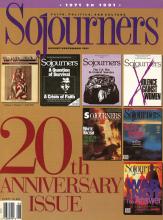Five minutes after Ronald Reagan was sworn in as president on January 20, 1981, the 52 American hostages held in Iran at the time were released -- ending a crisis that had gripped the country for months and was a major factor in the outcome of the presidential election (the hostage taking was the Republicans' Willie Horton of 1980).
The timing was seen as more than coincidence for some political observers among the opposition, who have long suspected that the 1980 Reagan-Bush campaign staff negotiated a deal with the Iranians to delay the release of the hostages until after the presidential election. The deal was allegedly cut to prevent an "October Surprise" hostage release in the weeks before the election; in return the arms embargo against Iran would be lifted.
Despite the coverage provided by a few persistent journalists in the alternative media -- including The Nation's Christopher Hitchens and In These Times' Joel Bleifuss -- the story has largely been dismissed by official Washington and the mainstream media. But that may be changing.
In April of this year, Gary Sick -- a former National Security Council staffer during the Carter administration and a frequent media analyst during the Gulf crisis -- wrote an editorial in The New York Times ("The Election Story of the Decade," April 15) describing "hundreds of interviews" he conducted while working on a recent book about the Reagan administration's policy toward Iran. Sick had earlier dismissed the charges as a "fanciful" conspiracy theory, but explained in the editorial that the "weight of testimony has overcome my initial doubts."
Read the Full Article
